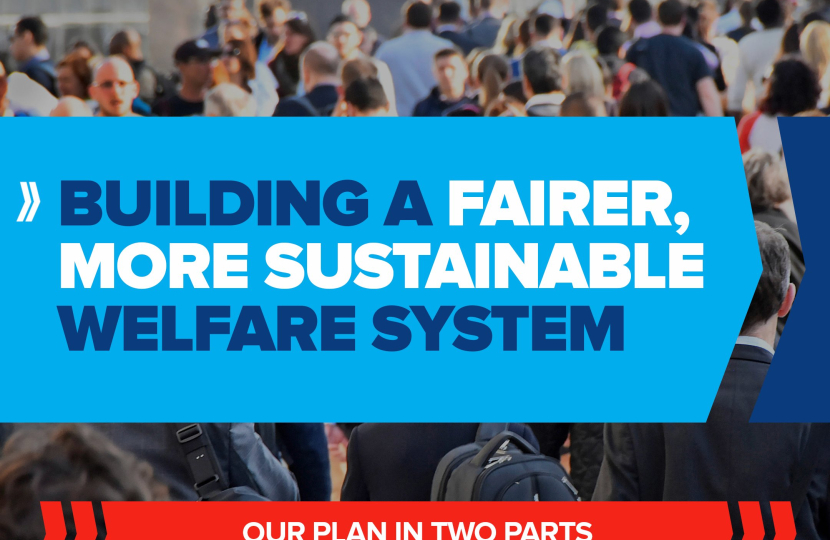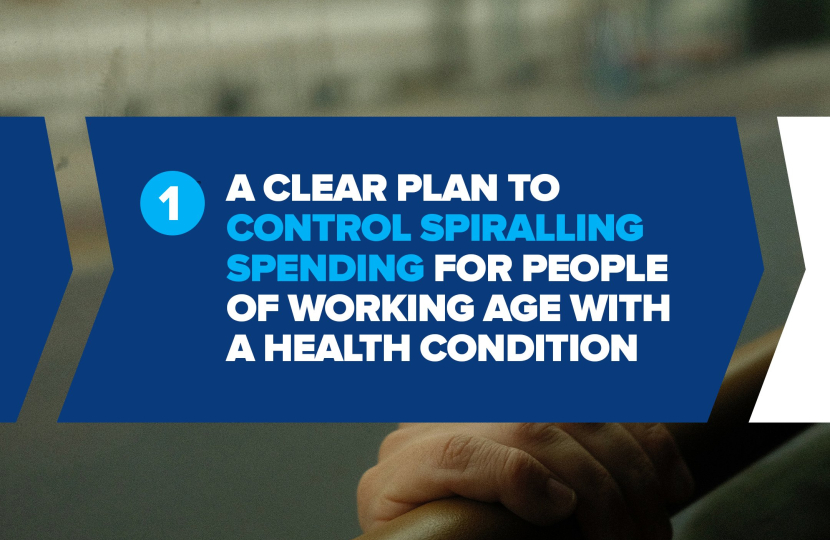This Government supported the most vulnerable in our society with £104 billion in cost of living support since 2022, boosting benefits and paying half of people's energy bills on average. However, we must go further to better support claimants across Castle Point and so we will dramatically expand mental health support and clamp down on benefit fraud, saving taxpayers money whilst improving support for those most in need.
Rebecca Harris
Fairness must be at the heart of our welfare system – but we must make bold reforms to ensure it is sustainable and it would be irresponsible not to take action. That is why, we have set out a clear plan to save £12 billion a year from the welfare bill by expanding mental health support, reforming disability benefit and changing how people are assessed for benefits.
Keir Starmer lacks the courage or conviction to set out a clear plan on welfare and Labour would hike taxes to pay for their benefit bill.
We will build a fairer welfare system by:
- Dramatically expanding mental health provision, tackling the root cause of worklessness. We will increase our planned expansion of talking therapies by 50% so that in total an additional 576,000 people can complete treatment by 2029-30. For those with the most severe mental illnesses, we will be increasing our Individual Placement and Support programme by 140,000 places by 2028-29.
- Reforming our disability benefits system, ensuring support is being targeted at those who need it most. We will improve Personal Independence Payment assessments to provide a more objective assessment of people’s needs, look at the best way to provide support including whether treatment or services could be more appropriate for some people than a monthly cash payment and make the process easier for those with the most severe conditions.
- Tightening the Work Capability Assessment, helping everyone fulfil their potential. The changes will mean that those with more moderate mental health issues or mobility problems who could potentially engage with the world of work are given tailored support to help them access it, instead of being written off onto benefits.
- Overhauling the fit note process, stopping people from being signed off sick as default. 94% of fit notes are being signed off as ‘not fit for work’. We will design a system which moves the responsibility for fit notes away from hard-pressed GPs towards specialist work and health professionals.
- We will move all those left on outdated legacy benefits onto Universal Credit. People who refuse to take up suitable jobs after 12 months on benefits can have their cases closed and their benefits removed entirely.
- Continuing to clamp down on fraudsters, ensuring fairness at the heart of the system. Since 2019, we have delivered measures forecast to save £7.7 billion from tackling welfare fraud in the welfare system. To deliver further savings, we will give DWP powers to treat benefit fraud like tax fraud.
Overall, we will save £12 billion a year from working age welfare by the end of the Parliament. This is a reasonable estimate: if we brought the number of working age people claiming benefits for a health condition or disability back to the level it was before the pandemic, we would spend over £34 billion less.
Labour’s welfare system punished work – people could lose over £9 of every £10 extra they earned and the benefit system was so complicated that for some people, there was virtually no incentive to work. These reforms are about providing targeted support to the right people, supporting people into work and making the system sustainable.



